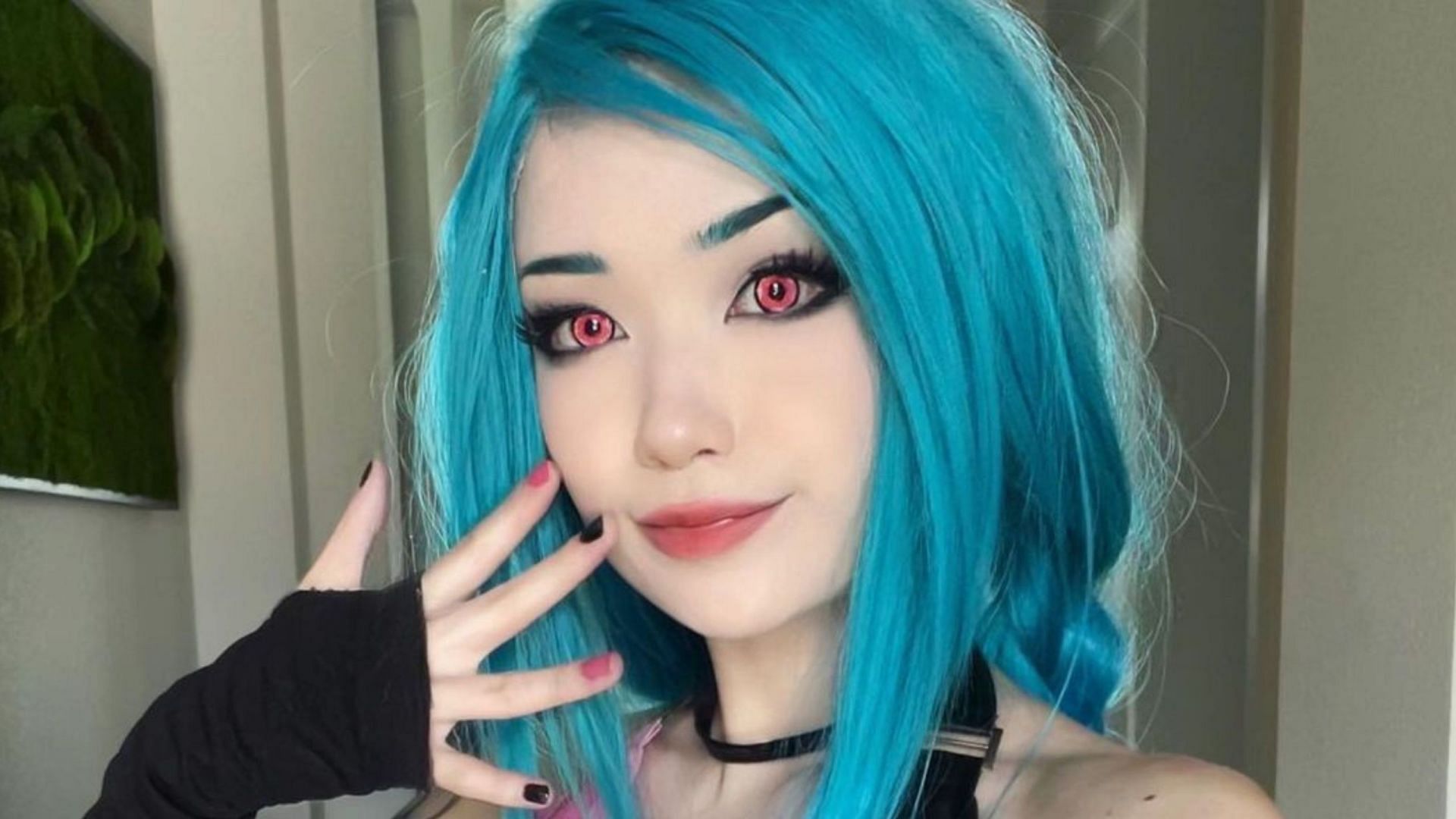Unpacking The Buzz: What 'Emiru AI Nude' Means For Digital Privacy And Public Figures
It's almost as if the digital world never stops evolving, isn't it? Very often, we find ourselves grappling with new technologies and the questions they bring. So, when terms like 'emiru ai nude' pop up in online searches, it really gets people thinking. This particular phrase points to a wider conversation about artificial intelligence, public figures, and, quite frankly, what it all means for our personal boundaries online. It's a complex area, to be sure, and one that touches on privacy, consent, and the very real impact of digital creations.
You know, Emily Schunk, professionally known as Emiru, has built quite a following. She's a well-known American online streamer, cosplayer, and YouTuber. Her work involves connecting with a vast audience, sharing her personality, and showing off her skills in gaming and cosplay. This connection, while wonderful, also places public figures like her right at the center of online discussions, sometimes in ways they never expected.
This article, in a way, is here to explore the broader picture behind such search terms. We're going to look at the rise of AI-generated imagery and the significant implications it carries for individuals, especially those in the public eye. It's about understanding the technology, the ethical lines, and how we can all navigate the online world with a bit more awareness and responsibility. So, let's get into it, shall we?
Table of Contents
- Biography of Emily "Emiru" Schunk
- Personal Details & Bio Data
- The Rise of AI-Generated Imagery and Deepfakes
- Understanding "Emiru AI Nude": The Phenomenon
- Ethical Considerations and Digital Boundaries
- Protecting Public Figures in the Digital Age
- Navigating Online Content Responsibly
- Frequently Asked Questions (FAQs)
Biography of Emily "Emiru" Schunk
Emily Beth Schunk, who many know as Emiru, has certainly made a name for herself in the online entertainment space. Born on January 3, 1998, she's become a familiar face across platforms like Twitch and YouTube. Her journey to becoming a prominent internet personality is, in some respects, quite remarkable.
She's widely recognized for her captivating cosplay creations, which really showcase her artistic flair. Beyond that, Emiru is a dedicated Twitch streamer and a YouTuber, connecting with her audience through gaming content and various other engaging videos. It's pretty clear she has a knack for captivating hearts with her infectious personality and, you know, just her undeniable presence.
Emiru's public persona is also shaped by her unique interests. She's often described as a "rabbit dealer," a "Kirby hoarder," and even a "professional soap taster," which, honestly, just adds to her charm. These quirky details, in a way, help her stand out and form a stronger bond with her fans. She's certainly built a community around her passion for gaming and her creative endeavors.
- Aishah Sofey Only Leak
- Haircuts For Straight Hair Men
- Aishah Sofey Boobs Leak
- Ripped Reiley
- Aishah Sofey Onlyfans Leaked
Personal Details & Bio Data
| Detail | Information |
|---|---|
| Full Name | Emily Beth Schunk |
| Known As | Emiru |
| Date of Birth | January 3, 1998 |
| Nationality | American |
| Profession | Online Streamer, YouTuber, Cosplayer |
| Main Platforms | Twitch, YouTube |
| Notable Affiliations | Formerly associated with One True King (OTK) |
The Rise of AI-Generated Imagery and Deepfakes
The progress in artificial intelligence over the past few years has been, well, pretty astonishing. We're seeing AI tools that can create images, sounds, and even videos that look incredibly real. It's almost like magic, but it's just really advanced computing. These tools can, for instance, generate pictures of faces that don't belong to any real person, or even put someone's face onto another body in a video.
This technology, often called "deepfakes," has become increasingly sophisticated. It can take existing images or video footage of a person and, quite literally, map their likeness onto different scenarios. While some uses of this technology are harmless, or even creative, like for special effects in movies, there's a darker side that raises significant concerns. It's a bit like a double-edged sword, you know?
The ease with which these images can be produced means that virtually anyone with access to the right software can, in theory, create convincing, yet completely fabricated, content. This capability, in some respects, opens up a whole new set of challenges for individuals, particularly those who are widely recognized. It's a fairly new frontier, and we're all still figuring out the ground rules, so to speak.
Understanding "Emiru AI Nude": The Phenomenon
So, let's talk about the specific search term, "emiru ai nude." This phrase, quite frankly, points to a troubling aspect of this new AI landscape. It indicates a search for, or perhaps an awareness of, AI-generated images that depict Emiru in a compromising or explicit way, without her consent. It's a very real example of how powerful technology can be misused.
The existence of such search terms highlights a significant problem: the creation and dissemination of non-consensual synthetic media. These aren't actual photos or videos of Emiru, but rather fabrications created by artificial intelligence. The fact that people are looking for them, or that they even exist, really underscores the urgent need for better digital ethics and stronger protections for individuals.
This phenomenon isn't unique to Emiru; many public figures, especially women, have become targets of this kind of digital manipulation. It's a stark reminder that what appears online isn't always real, and that the impact of these fabricated images can be profoundly damaging to a person's reputation, mental well-being, and overall sense of safety. It's a pretty serious issue, when you think about it.
Ethical Considerations and Digital Boundaries
When we talk about AI-generated imagery, particularly the kind that creates "emiru ai nude" content, the ethical questions are, quite honestly, enormous. The core issue here is consent. Creating or sharing images of someone, especially explicit ones, without their permission is a profound violation of their privacy and autonomy. It's a direct attack on their personal boundaries.
Consider the harm these fabricated images can cause. For a public figure like Emiru, such content can lead to immense emotional distress, reputational damage, and even threats to their safety. It's not just "fake" content; it has very real-world consequences for the person depicted. It can, in a way, feel like a complete loss of control over one's own image and identity.
Moreover, the widespread availability of such content normalizes the idea that it's acceptable to violate someone's digital privacy. This, frankly, erodes trust in online spaces and makes the internet a less safe place for everyone. We, as users, have a responsibility to think critically about what we consume and share, and to actively reject content that is clearly harmful or non-consensual. It's a bit of a moral compass moment, really.
Protecting Public Figures in the Digital Age
Public figures, like Emiru, live much of their lives in the public eye, which makes them particularly vulnerable to the misuse of AI technology. They often share a lot about themselves with their communities, which is part of their appeal. However, this openness, in some respects, also exposes them to risks like deepfake creation. It's a tricky balance to strike, you know?
The current legal frameworks are, in many places, still catching up to the rapid advancements in AI. It's pretty hard to prosecute those who create or spread non-consensual synthetic media, which leaves victims feeling helpless. There's a real need for stronger laws and better enforcement mechanisms to protect individuals from this kind of digital abuse. It's not just about protecting celebrities; it's about setting a standard for everyone.
Platforms also have a crucial role to play here. They need to implement more robust policies and tools to identify and remove harmful AI-generated content promptly. It's not enough to just react; they need to be proactive in safeguarding their users. We all, in a way, have a part in advocating for a safer, more respectful online environment, especially for those who share so much of themselves with us.
Navigating Online Content Responsibly
In our current online world, where AI can create almost anything, it's pretty important for all of us to become more critical consumers of content. When you come across something that seems too shocking or too personal, especially involving a public figure, it's wise to pause and question its authenticity. Not everything you see online is, actually, true.
If you encounter content like "emiru ai nude" or any other non-consensual synthetic media, the most responsible action is to avoid sharing it. Spreading such content, even if you don't create it, contributes to the harm it inflicts. Instead, consider reporting it to the platform where you found it. Most platforms have mechanisms for reporting harmful or abusive content, and using them can make a real difference.
Supporting creators and public figures means respecting their boundaries and privacy. It's about appreciating their talent and contributions without contributing to harmful narratives or the spread of fabricated content. We can all contribute to a healthier digital space by making informed choices about what we engage with and what we amplify. Learn more about digital ethics on our site, and link to this page understanding AI's impact.
Frequently Asked Questions (FAQs)
What exactly are "AI deepfakes"?
AI deepfakes are, basically, synthetic media, like images or videos, that have been altered or created using artificial intelligence. They can make it seem as though someone said or did something they never actually did. It's a pretty advanced form of digital manipulation, often blending real elements with AI-generated ones.
How can I tell if an image or video is AI-generated?
It can be really tricky to spot AI-generated content, especially as the technology gets better. However, sometimes you might notice subtle inconsistencies, like unusual blurring, strange lighting, or odd distortions around edges. There are also tools and techniques being developed to help detect them, but it's a bit of an ongoing challenge.
What are the ethical concerns surrounding AI-generated imagery of public figures?
The main ethical concerns involve consent, privacy, and the potential for reputational damage. Creating or sharing AI-generated explicit content of someone without their permission is a serious violation of their rights. It can cause significant emotional distress and harm to their public image and personal life. It's, honestly, a profound breach of trust.



Detail Author:
- Name : Dr. Nils Mertz
- Username : tiana59
- Email : jast.heidi@hotmail.com
- Birthdate : 1982-01-13
- Address : 1128 Thiel Fort Suite 953 Mertzville, AK 74731
- Phone : +1-806-421-1313
- Company : Hilpert Group
- Job : Court Reporter
- Bio : Numquam quis dolorem ullam quam praesentium hic id. Molestias et ipsam id quo qui et vero. Id omnis neque excepturi aspernatur.
Socials
twitter:
- url : https://twitter.com/kasandra_waelchi
- username : kasandra_waelchi
- bio : Unde tenetur eligendi aut omnis. Beatae delectus facere sit dolorem est nam ipsum possimus. Ut tempora et suscipit inventore ut veritatis soluta.
- followers : 3953
- following : 1117
linkedin:
- url : https://linkedin.com/in/kasandra.waelchi
- username : kasandra.waelchi
- bio : Vitae laudantium qui ut rerum qui.
- followers : 1968
- following : 1582